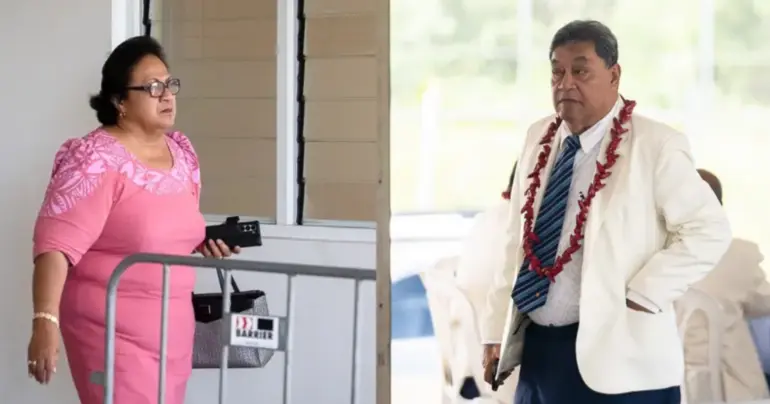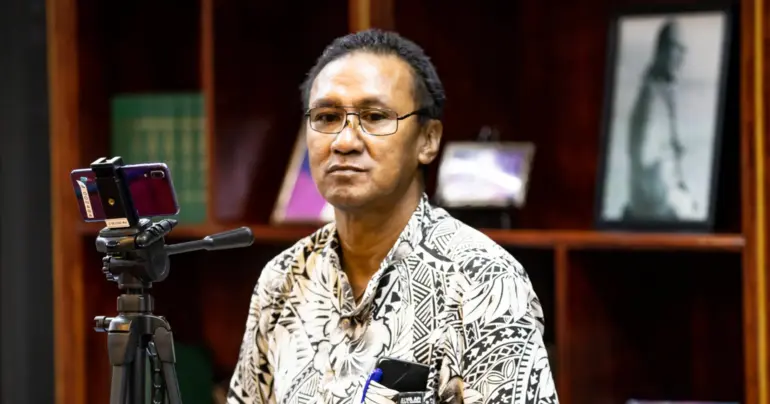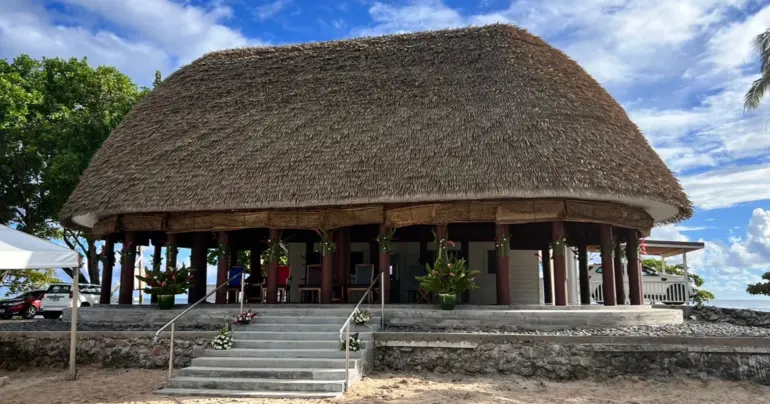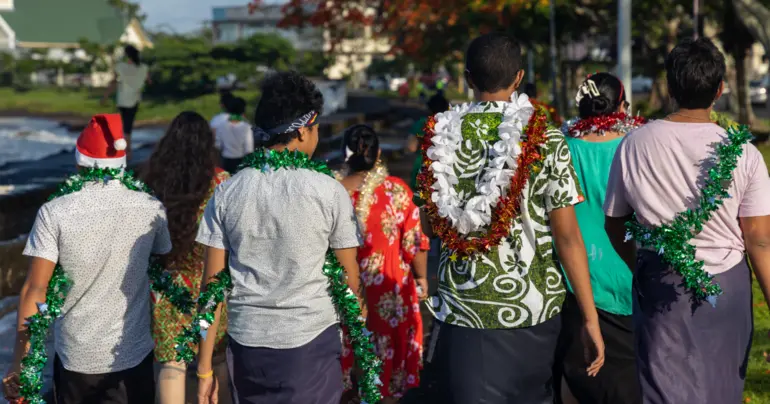COVID-19 crisis beginning to change, expert says
 By Sapeer Mayron
•
23 February 2021, 5:00PM
By Sapeer Mayron
•
23 February 2021, 5:00PM
With coronavirus cases beginning to drop in hotspots like America and the United Kingdom, one expert predicts we could be at the beginning of the end of the pandemic.
Rodney Jones, Principal of Wigram Capital Advisors, was among those who called New Zealand’s government in the earliest days of the pandemic in 2020 to warn of what would come ahead.
He has become one of the government’s key advisors, and is analysing and modelling the pandemic as it waxes and wanes across the world.
Last week, he told the Samoa Observer that with daily case numbers finally dropping and vaccinations taking off, the world could be soon seeing the end of the COVID-19 as an existential threat.
It could mean less risk of importing the virus at the border, he added.
“The worst point in the pandemic was in the beginning of January,” he said.
“That’s when the United States was reporting more than 300,000 cases, the U.K. had over 50,000, Europe was on fire.
“Since then, the curve has bent, and it’s a bit of a mystery why it’s fallen so far but across a number of countries, cases are down by 80,000.”
Between effective lockdowns, more mask-use and compliance, a change in leadership for the United States and vaccines, there are many contributions to the falling figures, Mr. Jones said.
The Atlantic’s Derek Thompson reports that as well as the vaccines and social distancing, the virus may be responding to warmer weather and even partial immunity in some places.
According to the Centre for Disease Control and Prevention, between 15 and 30 per cent of Americans have been infected with COVID-19. The virus may be running out of people to inject, the Atlantic reports.
Mr. Jones believes it is still too early for the numbers to be reflecting the efficacy of the vaccines, with too few countries vaccinating large enough groups.
“It’s only Israel that’s had high vaccination rates although the U.K. is catching up fast. That combination though has been enough to bend the curve significantly.
“We may not get another wave because from now vaccines are being deployed.”
With cases dropping and lockdowns easing, he said it is expected another wave could be on the horizon as people begin to relax. But as immunisation grows that expected wave could be staved off.
“Even in the emerging world, India has done well, South Africa has reduced its numbers. The outlook today is much better than we thought was possible six or seven weeks ago.”
This change in the global COVID-19 situation will result in fewer cases arriving in New Zealand, which is still Samoa’s only doorway from those hotspot nations.
Mr. Jones said he expects positive cases in New Zealand’s managed isolation and quarantine (M.I.Q.) should drop down to single digits a week by the middle of the year.
“The big spike in New Zealand cases in M.I.Q. was in that December January period. In my view, a case in M.I.Q. is a case in country, and it is a concern because there is scope for transmission, there is still risk around that. Lower cases globally means less risk to the border.”
Another major change will be New Zealand’s border force being vaccinated over the next three weeks,” Mr. Jones said.
“The risk of these sorts of leakages that we have had will be much, much lower.
“After July, an increasing proportion of the travelling world will be vaccinated and maybe you could introduce a rule where you can’t get on a plane unless you have a vaccine, once vaccines are truly available.”
Mr. Jones said once the risk of leakages at New Zealand’s border is gone, there is a genuine possibility for a Pacific travel bubble.
He said given two thirds of Samoa’s arrivals come from New Zealand and Australia, if those countries have border workers and their families vaccinated, it will be a safer environment for quarantine-free travel between them and the islands.
“If we can stop leakages so we have a zero leakage border, does that mean a bubble suddenly can happen? We can’t have a travel bubble while we still have leakages.
“Samoa is not safe as long as we are having leakages, there is always risk.”
But Samoa should be looking to vaccinate the entire population, not only its border force before opening up to travellers, Mr. Jones said, given its history and susceptibility to public health crises.
 By Sapeer Mayron
•
23 February 2021, 5:00PM
By Sapeer Mayron
•
23 February 2021, 5:00PM










